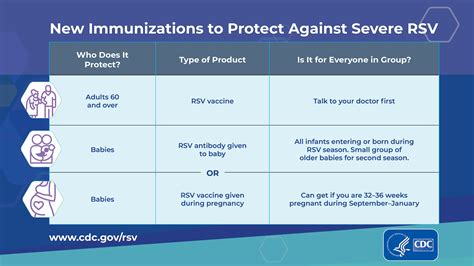How Often To Get the RSV Vaccine: A Guide for Optimal Protection
Respiratory syncytial virus (RSV) is a common respiratory virus that can cause mild, cold-like symptoms. However, for infants, older adults, and those with weakened immune systems, RSV can lead to severe illness, hospitalization, and even death. The development of the RSV vaccine offers a significant step towards better protection, but understanding the vaccination schedule is crucial.
Understanding the RSV Vaccine Schedule
The frequency of RSV vaccination is still evolving, as it is a relatively new vaccine. Current recommendations may vary based on your age and health status, so it's vital to consult your doctor for personalized advice. They will consider your individual risk factors when determining the appropriate vaccination schedule.
Who Needs the RSV Vaccine?
The RSV vaccine isn't recommended for everyone. Currently, it's primarily targeted towards:
- Older Adults (60+ years): This age group is particularly vulnerable to severe RSV infections.
- Pregnant Individuals: Vaccination during pregnancy can provide protection to the newborn baby.
- Infants and Young Children (High-Risk): Babies born prematurely or with certain underlying health conditions are at increased risk.
The Current Vaccination Recommendations (Consult Your Doctor for Updates)
Because medical recommendations can change, it's crucial to consult your doctor for the most up-to-date information on RSV vaccine schedules. They will be aware of any new guidelines or specific recommendations based on ongoing research and your individual medical history.
Do not rely solely on online information. The information provided here is for educational purposes and should not be considered a substitute for professional medical advice.
Factors Affecting Vaccination Frequency
Several factors influence the frequency of RSV vaccination:
- Age: Vaccination schedules differ between age groups.
- Underlying Health Conditions: Individuals with pre-existing conditions may require more frequent vaccinations.
- Immune Response: Your body's response to the vaccine can impact the recommended frequency.
- Emerging Variants: Just like with the flu, new RSV variants might require updated vaccines.
Maximizing the Effectiveness of Your RSV Vaccine
While the frequency of vaccination is crucial, several other factors contribute to the overall effectiveness of the RSV vaccine:
- Maintaining a Healthy Lifestyle: A balanced diet, regular exercise, and sufficient sleep strengthen your immune system.
- Practicing Good Hygiene: Washing hands frequently, covering coughs and sneezes, and avoiding close contact with sick individuals can significantly reduce the risk of RSV infection.
- Staying Up-to-Date on Medical Recommendations: Regular checkups with your doctor will ensure you receive the necessary vaccinations and guidance.
Remember: The information above is a general guide and may not reflect the most recent updates. Always consult your physician for personalized advice on RSV vaccination based on your specific needs and circumstances. They can offer the most accurate and up-to-date recommendations to protect you and your loved ones.
